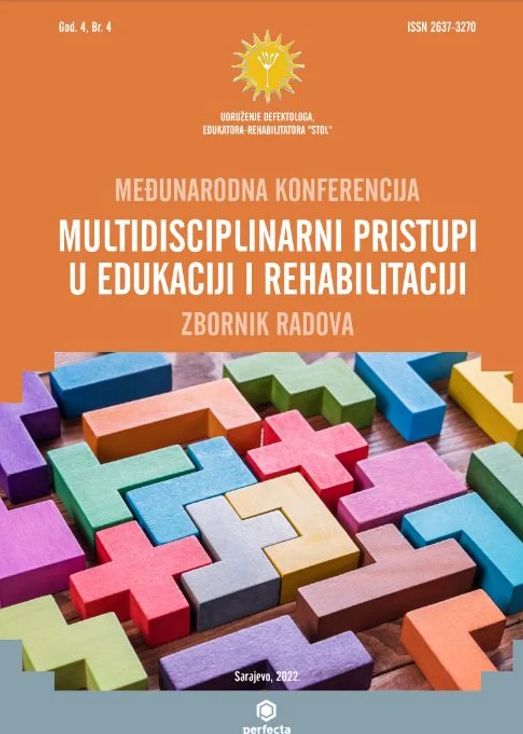INKLUZIJA (NI)JE ILUZIJA
INCLUSION IS (NOT) AN ILLUSION
Author(s): Elvira Mujkanović, Lejla PodbićaninSubject(s): Social Sciences, Education, Inclusive Education / Inclusion
Published by: Udruženje defektologa, edukatora-rehabilitatora (STOL)
Keywords: inclusion; illusion; children with developmental disabilities;
Summary/Abstract: The term inclusion is a word of Latin origin inclusio, meaning inclusion, inclusion, coverage, and implication. By definition and according to most authors, it represents the most complete concept or process of including parts as a whole. In education, inclusion provides each child with equal opportunities to develop potential and is a humane process. However, inclusion is a process that does not only apply to the inclusion of children with disabilities in regular schools and preschools. Inclusion means breaking down barriers in everyday life and the active and equal participation of children and adults with disabilities in all fields of living and functioning, whether a child or an adult. Inclusion and the inclusive education process takes place over the days. During this period, have we learned what it means to be different, how to accept differences as positive characteristics of another person and whether we have taught our children how to build an equal relationship with people who have some difficulty in developing? We tried to answer these questions by questioning primary school students in Sarajevo. The main goal of the research was to examine, analyze and determine whether primary school children have a developed awareness of the existence of diversity as a positive characteristic of a person, and determine whether the children talk to the parents about the differences and how much the parents inform them about it, whether they are informed about the categories of developmental difficulties as well as whether after so many years since the introduction of inclusion the question remains whether inclusion is an illusion. Based on the obtained research results, we can conclude that the inclusion of children with disabilities is positively accepted by peers, but that it is necessary to continue working on information, socializing together as well as educating parents about raising a child without prejudice in order to build an ideally inclusive society.
Journal: Multidisciplinarni Pristupi u Edukaciji i Rehabilitaciji
- Issue Year: 4/2022
- Issue No: 4
- Page Range: 71-81
- Page Count: 11
- Language: Bosnian, Croatian, Serbian

